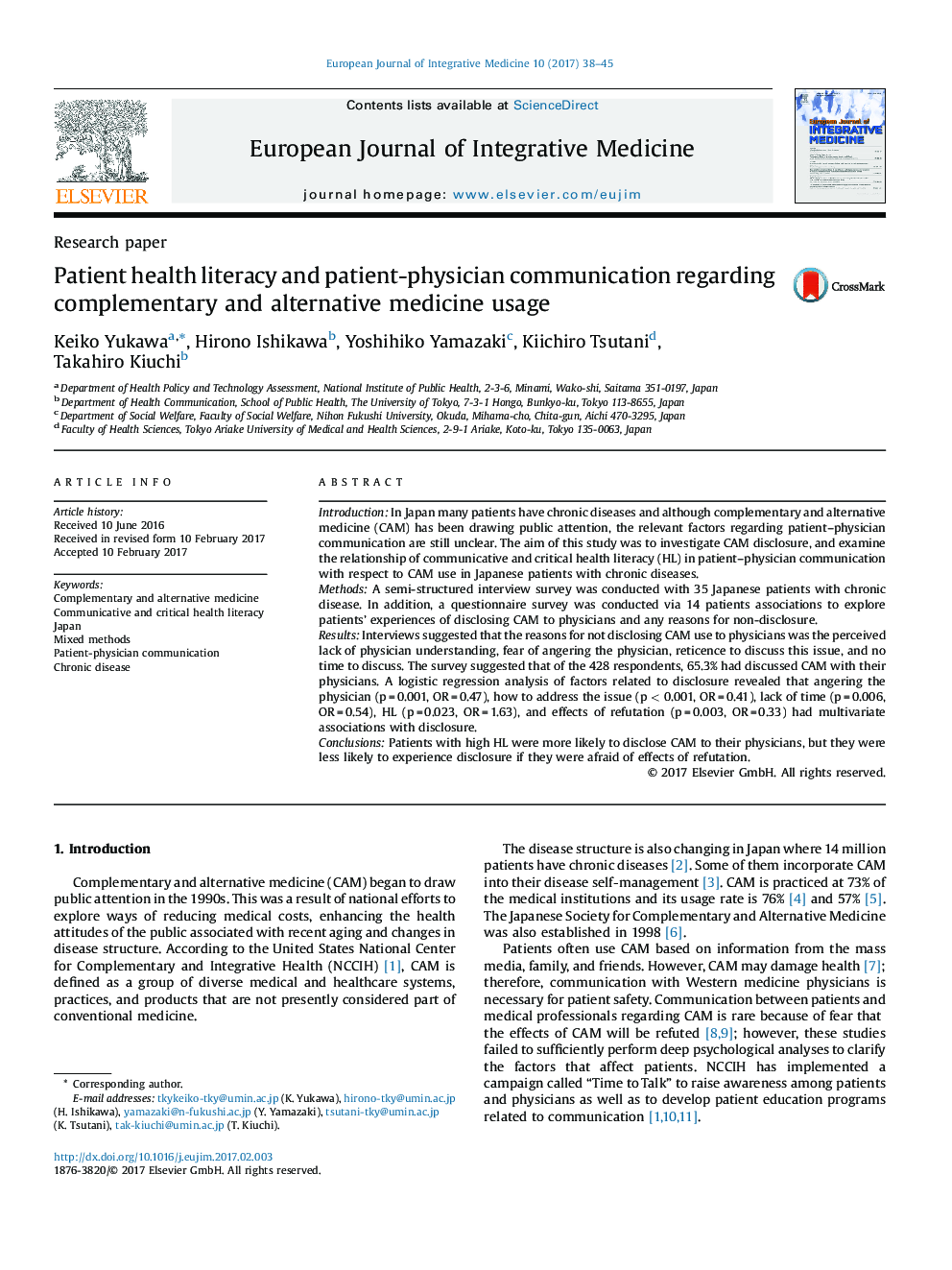| Article ID | Journal | Published Year | Pages | File Type |
|---|---|---|---|---|
| 5547297 | European Journal of Integrative Medicine | 2017 | 8 Pages |
IntroductionIn Japan many patients have chronic diseases and although complementary and alternative medicine (CAM) has been drawing public attention, the relevant factors regarding patient-physician communication are still unclear. The aim of this study was to investigate CAM disclosure, and examine the relationship of communicative and critical health literacy (HL) in patient-physician communication with respect to CAM use in Japanese patients with chronic diseases.MethodsA semi-structured interview survey was conducted with 35 Japanese patients with chronic disease. In addition, a questionnaire survey was conducted via 14 patients associations to explore patients' experiences of disclosing CAM to physicians and any reasons for non-disclosure.ResultsInterviews suggested that the reasons for not disclosing CAM use to physicians was the perceived lack of physician understanding, fear of angering the physician, reticence to discuss this issue, and no time to discuss. The survey suggested that of the 428 respondents, 65.3% had discussed CAM with their physicians. A logistic regression analysis of factors related to disclosure revealed that angering the physician (p = 0.001, OR = 0.47), how to address the issue (p < 0.001, OR = 0.41), lack of time (p = 0.006, OR = 0.54), HL (p = 0.023, OR = 1.63), and effects of refutation (p = 0.003, OR = 0.33) had multivariate associations with disclosure.ConclusionsPatients with high HL were more likely to disclose CAM to their physicians, but they were less likely to experience disclosure if they were afraid of effects of refutation.
